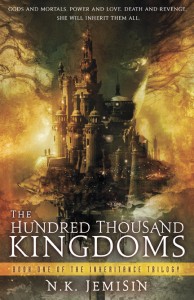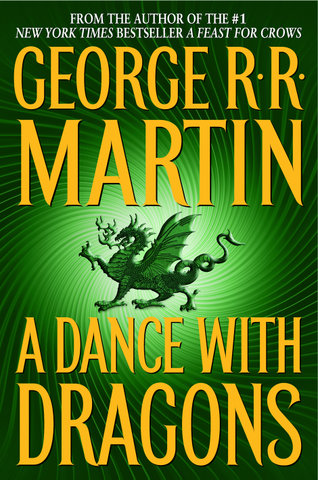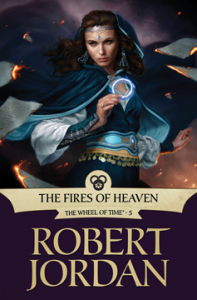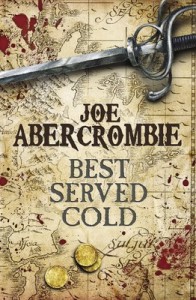Grasping for the Wind hit the blogging scene around the same time as A Dribble of Ink. Immediately, John and I hit it off and have been friendly rivals since then, learning the ins and outs of the blogosphere alongside one another.
John’s put together a list of tips for bloggers, aimed mostly at those just getting into the game, but also just as useful for established bloggers. If you’re looking to improve your blog, it wouldn’t hurt to keep some of these in mind.

1. Purchase a dedicated website address.
In my own history, I have had two web addresses. The first was hosted by a friend’s hosting agency and it was at otter.covblogs.com. When I first got the site, I was new to blogging, had no idea what I was doing or where I planned to take my blog so it served me just fine. But once my readership began to increase, it became clear that having a dedicated web address would be a good idea, though I still waffled about for some time, something I still regret.
This one might be more intimidating than John’s other suggestions, but I’d recommend it whole heartedly. ‘But wait!” you might say. “A Dribble of Ink is found at www.aidanmoher.com/blog! That’s not a dedicated website address!” Yeah, you’d (kinda) be right. One, it’s hosted on my own webspace, which helps build a bit of name for myself as a personality; secondly, you can reach my blog through www.adribbleofink.com and www.dribbleofink.com (not to mention the .blogspot.com and .wordpress.com variations of those addresses.) It’s important to make sure that no matter what someone types in their address bar, they’re going to find your blog.
2. Decide what you plan to review.
If you are planning on writing reviews – which should be your bread and butter –then you need to decide if you are going to focus on a specific genre or subgenre. I chose to be rather broad and I cover just about anything in the science fiction and fantasy category, though I avoid horror and read only select stories of the paranormal subgenre. Some bloggers, like Jeff at Fantasy Book News and Reviews, focus on epic fantasy and the eBook market, or you could be like Tia at Debuts and Reviews – who covers new authors breaking into the market, and whose reviews are primarily coverage of paranormal, romance, and some general fantasy. Aidan at A Dribble of Ink rarely even write reviews, but has found readership by always being on top of the latest goings on in the SF/F field and writing responsive essays to other’s ideas that are cogent and entertaining.
As John mentions, reviewing is only a small part of what I do here at A Dribble of Ink. I think too many bloggers get caught up in the notion of reviewing as many books as they can, at the expense of exploring the other avenues open to bloggers. Reviews are great, but analysis and commentary on the genre are what really endear me to a blog. The important thing to take from John’s rule is to find your niche and be the strongest blogger in that niche.
3. Stats matter, but only to a certain extent.
Be sure to install a tracking plug-in onto your website like WordPress Stats or Google Analytics. There are lots of options out there, choose the one that tells you want you want to know. Pay attention to your stats; realize where the traffic is coming from. In the early days, be sure to go thank those who link to your posts. (This is good practice always, but as you get bigger, you will find you have less and less time to devote to this, even though you wish you could comment everywhere.)
…
Go look at what others are doing. Look at the big dogs and see what they are doing right. A word of caution – be sure that you are comparing apples to apples. Comparing a blog with a single author to a group blog like SF Signal (with its thousands of readers) or Fantasy Book Critic (with its thousands) is a waste of time and effort. You might be able to come away with some neat ideas on what you could do at your site, but there is now way a single author blog can compare to the sheer number of posts that those folks produce. Look at the single author or one or two author blogs that are more in your range. Obviously, I myself would be a comparable, and perhaps am some evidence of what four years of consistent blogging can bring you.
I’m a stats whore, so I won’t try to tell you that they’re not important to me. But, John’s right that it’s more or less useless to compare yourself against any other sites. I rarely give out info on my own stats, and don’t really see an advantage to bragging about it (I do like to celebrate milestones, though. It’s nice to pat yourself on the back once in a while. Just do you thing and the viewers will come.
4. Publicize, publicize, publicize!
You are new to the book blogging game. The hard truth of that is that no one, absolutely no one, is going to find your blog by accident. It is only through using publicity that you are going to find readers. Make sure you add yourself to various blog aggregators. Sign up for services like Goodreads, Librarything, Facebook, Twitter, FriendFeed, etc. and integrate your blog posts into those feeds. Comment on other blogs in your field of interest regularly, and go join forums like SFFWorld or Westeros. Make sure your signature has your web address in it – if allowed by the forum. Join just about anything you can that will help automate your promotion, but at the same time be sure to participate in discussion and not just be a fly by night I-am-only-here-for-promotion-member. Read favorite author blogs regularly and add your commentary. Use Search Engine Optimization services on your self-hosted blog to increase your reach in Google and Bing. Whatever it takes, do it, but enjoy the community that such publicity efforts can bring as well. Some of my best internet friends have been made through joining in discussions on blogs and as a result, we link to one another fairly regularly and so only increase our reach.
Very, very important. Even now, with a well established blog, I still try to market the shit out of my blog posts. Twitter, message boards, etc… it all helps bring notice to your blog. I first found The Speculative Scotsman, one of my new favourite blogs, through his comments on Speculative Horizons. Just don’t overdo it, that’s annoying.
5. Want to get books to review? Start with the authors.
First, build a small library of reviews. You don’t need a lot, but start with books you have read recently, bought and plan to read, are favorites, or that exist in your home library. Get some reviews out there, spend some time arriving at your style (this is fluid and will always change – but it is a good idea to think about layout etc. so that readers have a sense of consistency) and developing a voice that may be similar to others but is also uniquely your own. If you look at my Year of Reading 2007, every review on there up until September is books that I purchased and reviewed. I had, at this point, been consistently writing reviews for a year and a half. There are some quite successful bloggers who still refuse to take publisher copies, preferring to buy and read books of their choice so as not to bear the burden of obligation toward the publisher. This may be something worth thinking about, especially if you are doing this solely as a hobby and occasional creative outlet.
Even now, I still buy half the books I read. ARCs are a nice perk, but a blogger really shouldn’t let them have an impact on their work. Write good content, don’t be a pest, and, like the pageviews, the review copies will come. Just don’t get into the gig for free books.
So, there you go. John Ottingers tips for better blogging. I only took a sample from each of the entries, so, if you want to more, you can read the full article HERE.






